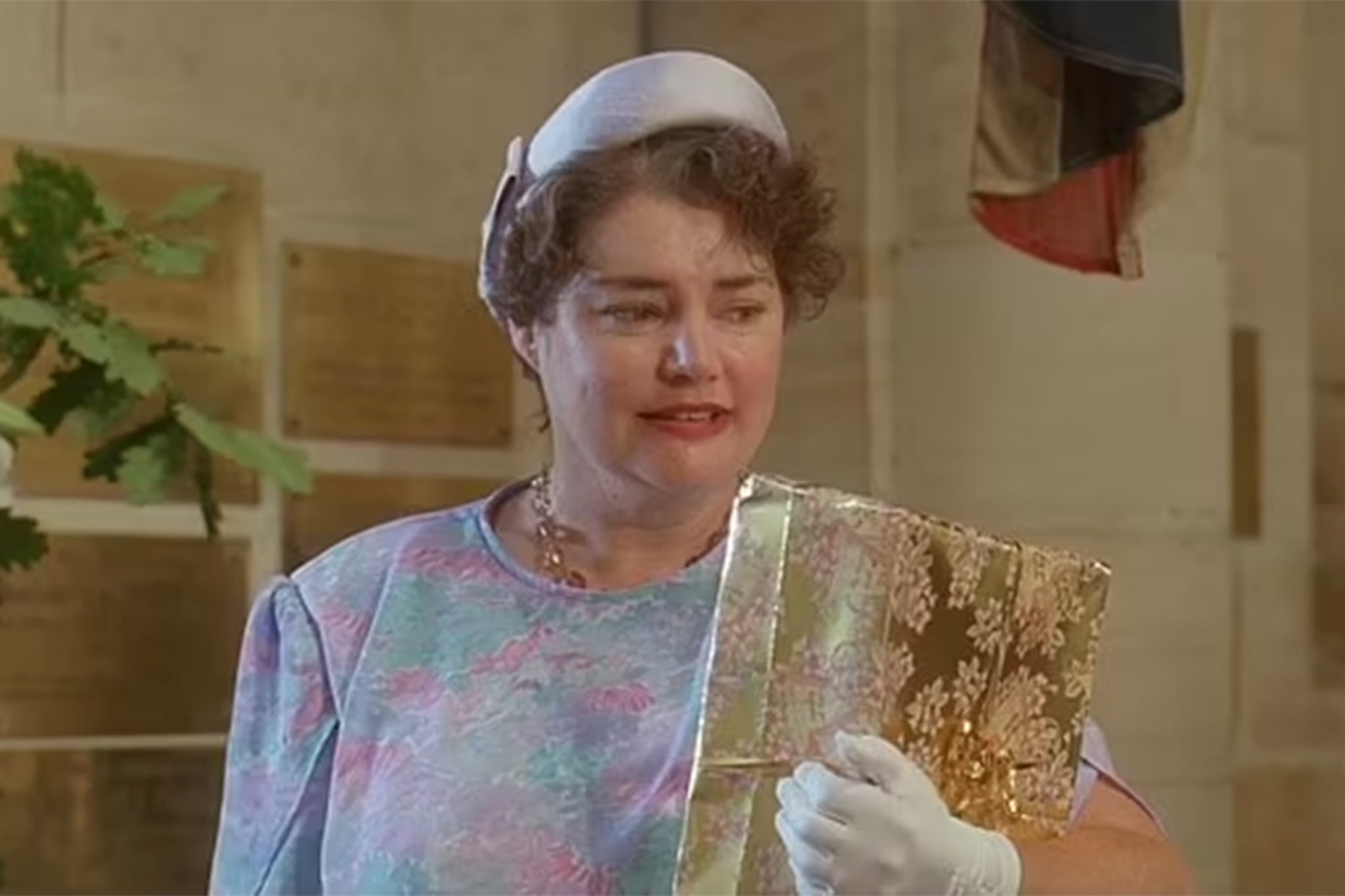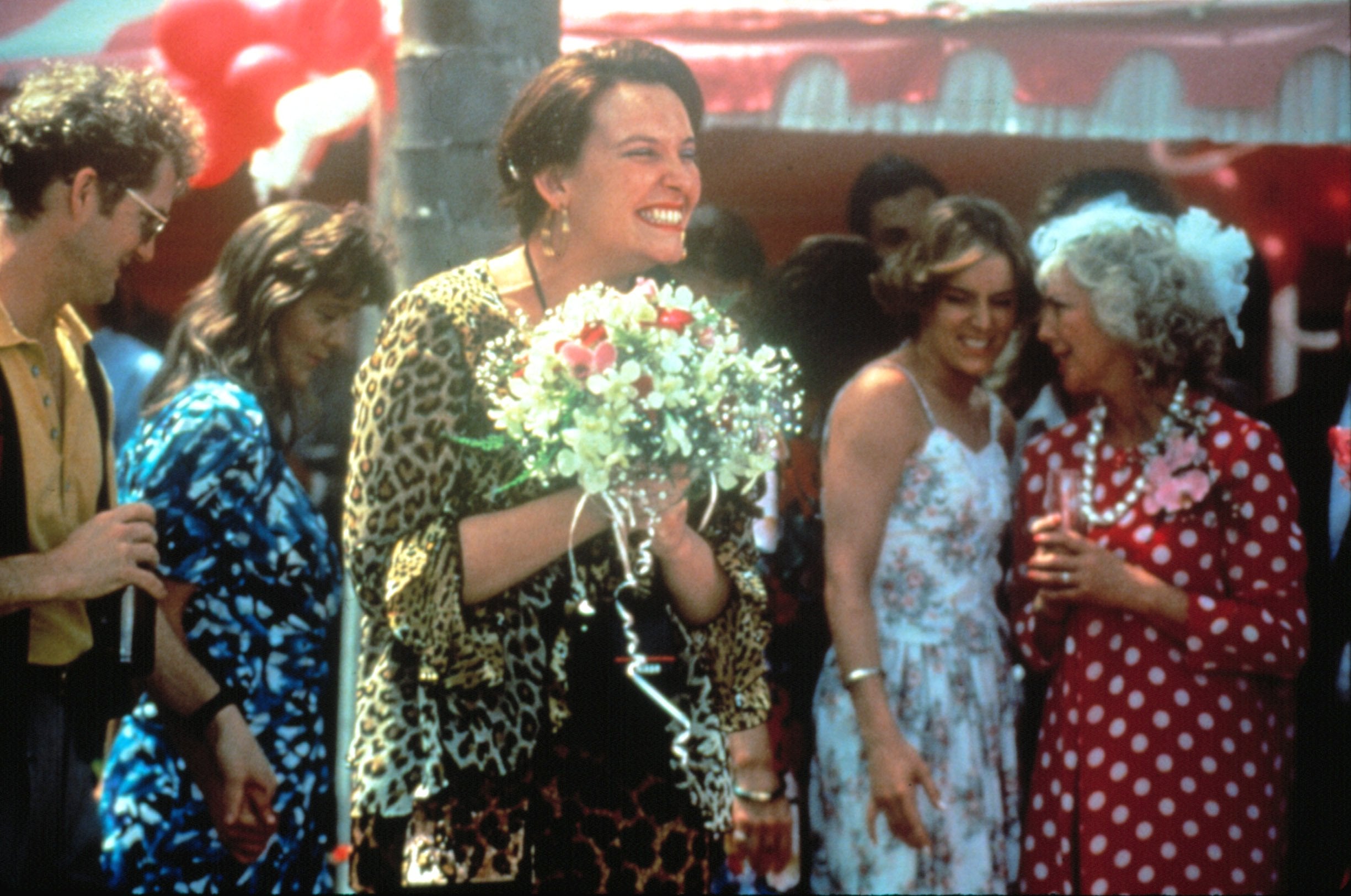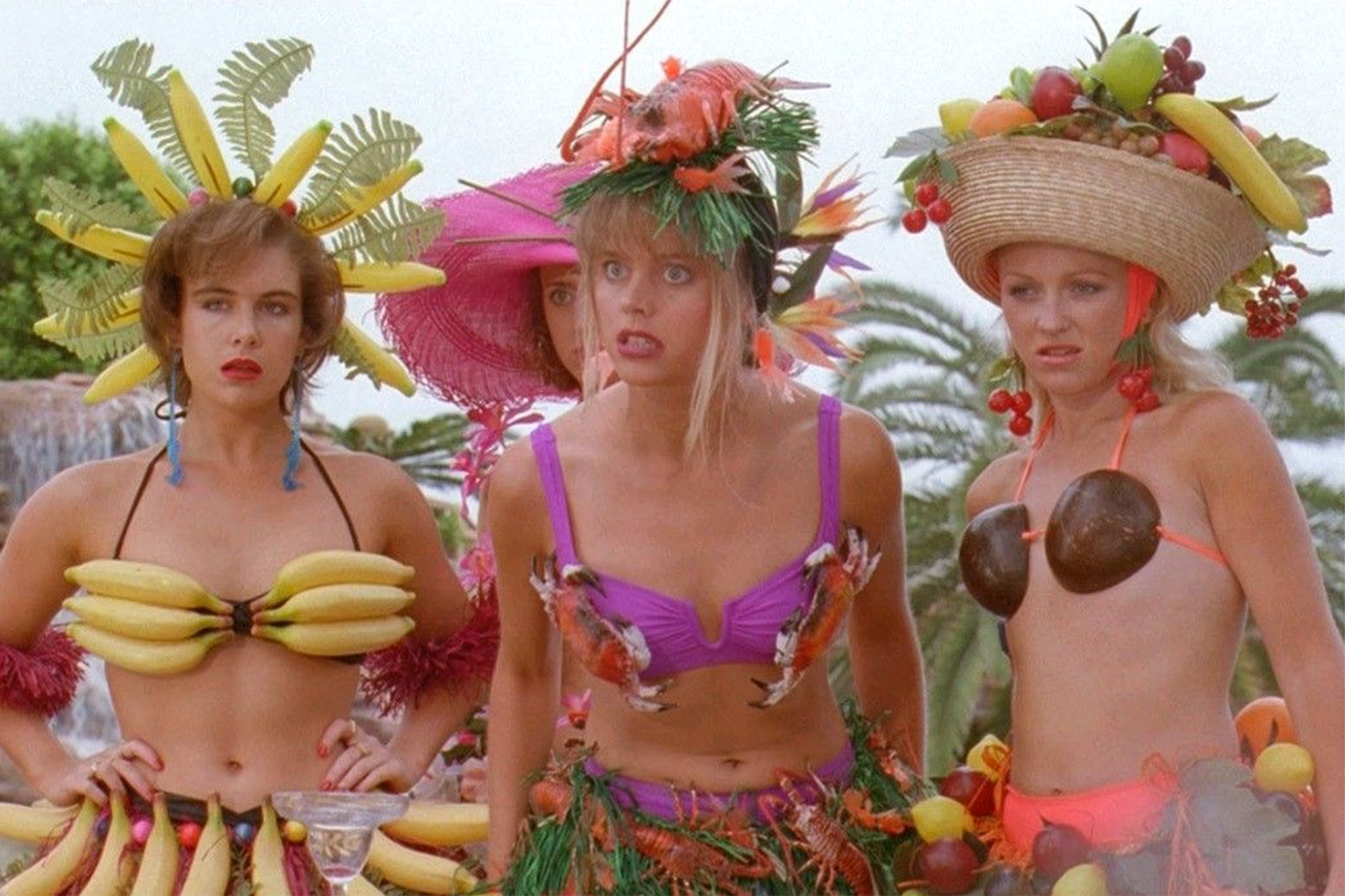Your support helps us tell the story
Our mission is to deliver impartial, fact-based reporting that holds power accountable and exposes the truth.
Whether $5 or $50, every contribution will be counted.
Support us in delivering journalism without an agenda.

TA bouquet flies across the screen with the sound of an incoming missile. Hands reach up, clasping as women rush towards him, screaming. Only one person wins: Muriel Heslop, Pig Spit resident and socialite. However, no sooner has she received the bunch of flowers than it is separated from her hands: “No one will ever marry you, you never had a boyfriend!”
On paper, Muriel’s wedding It sounds like a by-the-numbers romcom – a sad woman runs away from her small Australian town to the big city in hopes of reinventing herself and finding a husband – but there’s a lot more to it than that. Even now, on its 30th birthday, PJ Hogan’s film remains a radical portrait of patriarchy, class, ambition, disability, and the complexities of female friendship. Gradually sweet and sardonic, with a melancholic undertow, it’s driven by an indelibly indelible performance from newcomer Toni Collette.
Her co-star Dan Wyllie called it the “saddest funniest movie ever” – and it’s true. Muriel (Collette) is trapped in the Pig Spit with her bullying father, her honest mother and her sisters respectively. All she wants in life is to be a bride. Constantly on a mission to find a groom, she embezzles her family and flees to Sydney with her best friend and classmate, Rhonda (Rachel Griffiths). Once there, she reforms, changes her name to “Mariel” – and waits to change her life.
Although Hogan has said that finding Collette was a “pinch”, the actress herself recalled her determination to land the part. “I just knew I was going to do it,” she said Diversity in 2020. “It’s unclear to say given my lack of experience, but I knew.” She was compensated for her lock and determination: in just seven weeks, Colette shed 40 pounds for the part of Muriel – a character with an empty moony air; a woman wrapped in a fantasy world of taffeta and silk.
Collette was “young and enthusiastic”, says Jeanie Drynan, who plays Muriel’s mother Betty. “She was perfect.” Although the film largely follows Muriel’s journey, Betty is similarly affected. Her husband is a bully of the worst kind – corrupt, misogynistic, racist, narcissistic. He is also in a relationship with local entrepreneur Deidre Chambers. Betty is in turn ignored and ostracized by her family – after a misunderstanding in a supermarket where she is arrested for shoplifting, she finally breaks down and tearfully tells her husband Bill that she needs help. He turns on the radio to drown out.
Drynan, who is 73 and lives in Los Angeles, tells me she was initially approached for the role of Deidre but had “lost a lot of weight” and was in her late forties by then, and therefore felt that she was not suitable for the part. of mistress. “I am the mother,” she said to Ógáin.

She thought the audition was over, but three weeks later she got a call in the middle of the night telling her to pack her bags. Her first scene – the supermarket shopping scene – was shot hours after she got off the 15-hour flight from LA to Sydney. “My feet must have been swollen and visibly dirty, and at this point I hadn’t had a shower or a cup of tea,” she says. “I told them, ‘You don’t have to touch my feet, just look at them!’”
Of all her work over the past 60 years, Drynan says yes Muriel’s wedding people often go to her. “It’s about the human condition,” she says of the film’s legacy. “Young girls always struggle with their body image. There are always women who have been reduced and are struggling with life. We all suffer in some way.”
Muriel’s suffering is greatly eased when she bumps into her old school friend, the funny, bald and sexy Rhonda, on holiday on the island. In their first meeting, Rhonda stands up to Muriel’s bullies, dropping the iconic line: “I’m not alone. I’m with Muriel.”

Watch Apple TV + for free for 7 days
New subscribers only. £8.99/m. after a free trial. Automatically renew a plan until canceled
Try it for free

Watch Apple TV + for free for 7 days
New subscribers only. £8.99/m. after a free trial. Automatically renew a plan until canceled
Try it for free
Collette is undoubtedly the emotional name of the film, but she is surrounded by a wonderful circle of supporting characters. Rhonda Griffiths’ spirit is like a front cannon, pushing Muriel out of her complacency and driving her to do something for herself. But she also calls Muriel in anticipation. “You’re right, you’re a new person, and you’re in trouble,” she tells her, outside the church at Muriel’s wedding. “Mariel VanArkle is a hit! And Muriel Heslop is not half human.”

“The great thing about it [Rhonda] nor that her vitality was self-defined,” Griffiths said Diversity in 2020. At the heart of the film, she said, “is the idea that when your family basically rejects you … the families you create are beyond your lifeboats. So, Muriel helps Rhonda. They are family to each other.”
The odd-couple reunion is cemented with a bonkers, full-tilt performance of Abba’s “Waterloo” that earns the duo first prize at a talent show. Back in the Pig Spit, only the Swedish superstars could lift Muriel’s spirits. “When I lived in Pig’s Spit, I would sit in my room for hours and listen to Abba songs,” Muriel tells Rhonda towards the end of the film. “But since I met you and moved to Sydney, I haven’t listened to a single Abba song. That’s because my life is as good as an Abba song. It’s as good as ‘Dancing Queen’.”
Muriel’s wedding which happens to be one of a handful of films that Abba have given permission to use their music. “It didn’t come out of nowhere, for Abba, but I think they must have read the script and really liked it – because they’re known for saying ‘no’ to everything,” he says. Jan Gradvall, Abba expert and music journalist. Likewise, Drynan says Hogan was “lucky” to secure the music rights: “The music is a good 20 percent of the movie, in a way.” In fact, songs like “Dancing Queen”, “Waterloo” and “Fernando” feel like characters themselves, shouting at Muriel when no one else would.
There were plenty of cheers from the critics, too. When it was released, the great film critic Roger Ebert noticed that Muriel’s wedding walked the “careful line between satire and sarcasm”. It is unsparing, he wrote, in its “portrait of provincial society, yet it has immense affection for its unfit survivors”. The film came at an opportune time for Australian cinema – on the crest of a wave shared by Strictly Ballroom and The Adventures of Priscilla, Queen of the Desert. Together, they heralded a renaissance in Australian filmmaking that catapulted homegrown talent, like Colette, onto the international stage. The actress earned a Golden Globe nomination for her performance, and Hogan went on to direct the seminal 1997 romcom My best friend’s wedding.
Muriel’s wedding It’s often billed as a romcom, too, but that kind of label is a misnomer. Granted, it’s a total hoot thanks to the witty dialogue and great comedic timing. (“You have no dignity, Muriel,” cries Cheryl (Roz Hammond) while wearing a grass skirt, fake flowers, and a giant pink hat.) But there is a darkness at his heart, one that is relatable to everyone. Speaking to Diversity in 2020, Collette said she believes the film strikes a chord because most people feel like an awkward stranger at some point in their lives”.

“It’s part of being human,” she continued. “Insecurity is among other obstacles to overcome. me [have realised] Muriel entertained the audience in general. It feels even less alone and okay to feel vulnerable and imperfect in a society that demands so much of us.”
It’s also part of the reason the film has attracted LGBT+ fans. Griffiths said The Conversation that she spoke to a gay man in his twenties who explained that he saw the film as a parable for AIDS – a major health crisis at the time. “We are the outcasts in the family. We have few fathers for being feminine,” he told her. “We escape to the big smoke and promise to be ourselves and continue our own journey. We replace our family that rejected us and our chosen family that we celebrate.”
Rhonda and Muriel are each other’s family; Any romance in the story stems from their friendship. Although Muriel eventually marries – to a handsome South African swimmer who needs a green card – she leaves him to find Rhonda, now in a wheelchair after spinal cancer surgery.
It is then that Muriel finds her fairytale ending, as she and Rhonda bid farewell to the Pig Spit for good, driving off into the sunset to the ominous sound of “Dancing Queen”.
“There’s something so brave about this girl, who doesn’t really have any experience, who just has to escape from an abusive past and kind of reshape her whole family dynamic and history,” Collette said. “She is an underdog, but she also goes for it.” There is a beautiful irony in how, for all Muriel wishes she could be like everyone else, we are the ones who want to be like her.
#fell #love #Muriels #Wedding #flawed #wonderful #heroine